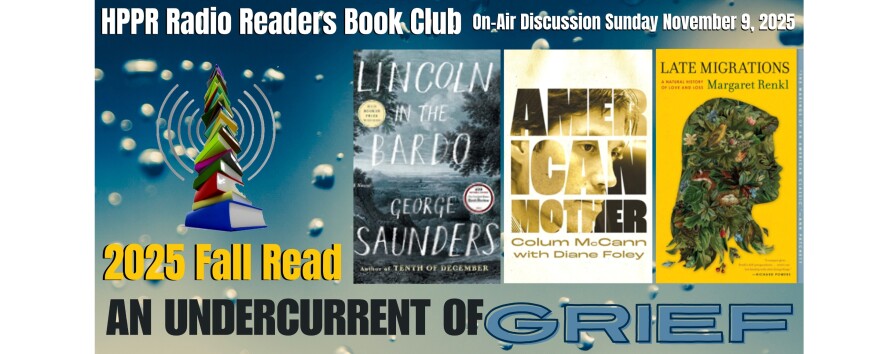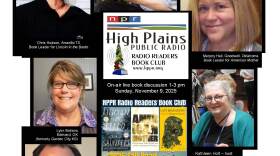This book may contain language, sexual content, and themes of grief and loss, which may be challenging for some readers. Reader caution advised.
Understanding Many Perceptions of Loss
by Mildred Rugger
Hi, everyone. This is Mildred Rugger from Canyon, Texas, for the 2025 Fall Read of HPPR Radio Readers Book Club.
In Lincoln in the Bardo, George Saunders creatively explores the ideas of what happens after death and of the connection between those who have died and those who still live. He’s not the first to do so, nor will he be the last.
I’ll admit that I intensely dislike the most famous example of this imaginative exercise: Dante’s The Divine Comedy, especially the section on “The Inferno.” Like a few parts of Lincoln in the Bardo, the visualization of eternal torture in “The Inferno” strikes me as an insult to the God I have come to know, whose very nature and greatest commandments to humankind can be summed up in one word: love.
I’m not against facing death through the imagination, though. In fact, my time as a hospice spiritual caregiver taught me that doing so is natural and can be helpful. I was privileged to hear thoughts on death from many different people from many faith backgrounds, including none at all. It seemed to help both the patients and their families to talk about their beliefs, their imaginings, their hopes, their fears surrounding death.
So, I appreciated George Saunders’ exploration of this theme. I especially liked the glimpse into one person’s grief, but it was also interesting as a historical novel. I found myself contemplating how the death of President Lincoln’s older son Willie may have influenced President Lincoln. He must have come to understand the many forms of suffering surrounding the U.S. Civil War better. I even wonder if this experience influenced some of the decisions he made.
It also seemed fitting for the title to bring in the Tibetan Buddhist concept of the Bardo. This was a new concept to me, and I still don’t understand the full meaning of the six times of transition envisioned in Tibetan Buddhism. It doesn’t seem like Saunders is using “the Bardo” in a truly Buddhist sense, but rather simply to refer to a time of transition associated with death. I certainly think of grief as a time of transition.
A couple of lessons from this book fit with what I learned as a hospice spiritual caregiver. First, it’s important to take stock of our lives, especially as we near the end. If we’re honest about how we have lived, we will feel gratitude as well as regret and remorse. Acknowledging the good as well as the bad helps us move on more peacefully.
Second, grief can teach us a lesson that was learned by President Lincoln in his grief for his son. To quote page 304, “Though on the surface it seemed every person was different, this was not true. At the core of each lay suffering: our eventual end, the many losses we must experience on the way to that end. We must try to see one another in this way—as suffering, limited beings.”
This is Mildred Rugger for HPPR Radio Readers Book Club, wishing you good grief.










